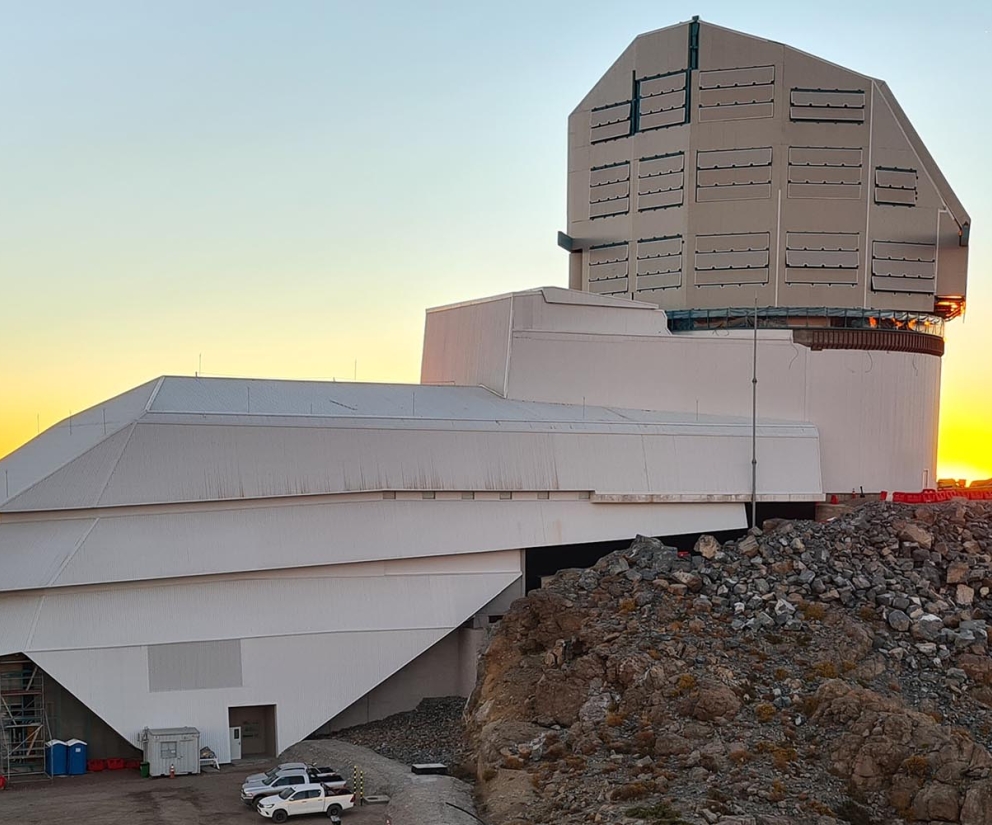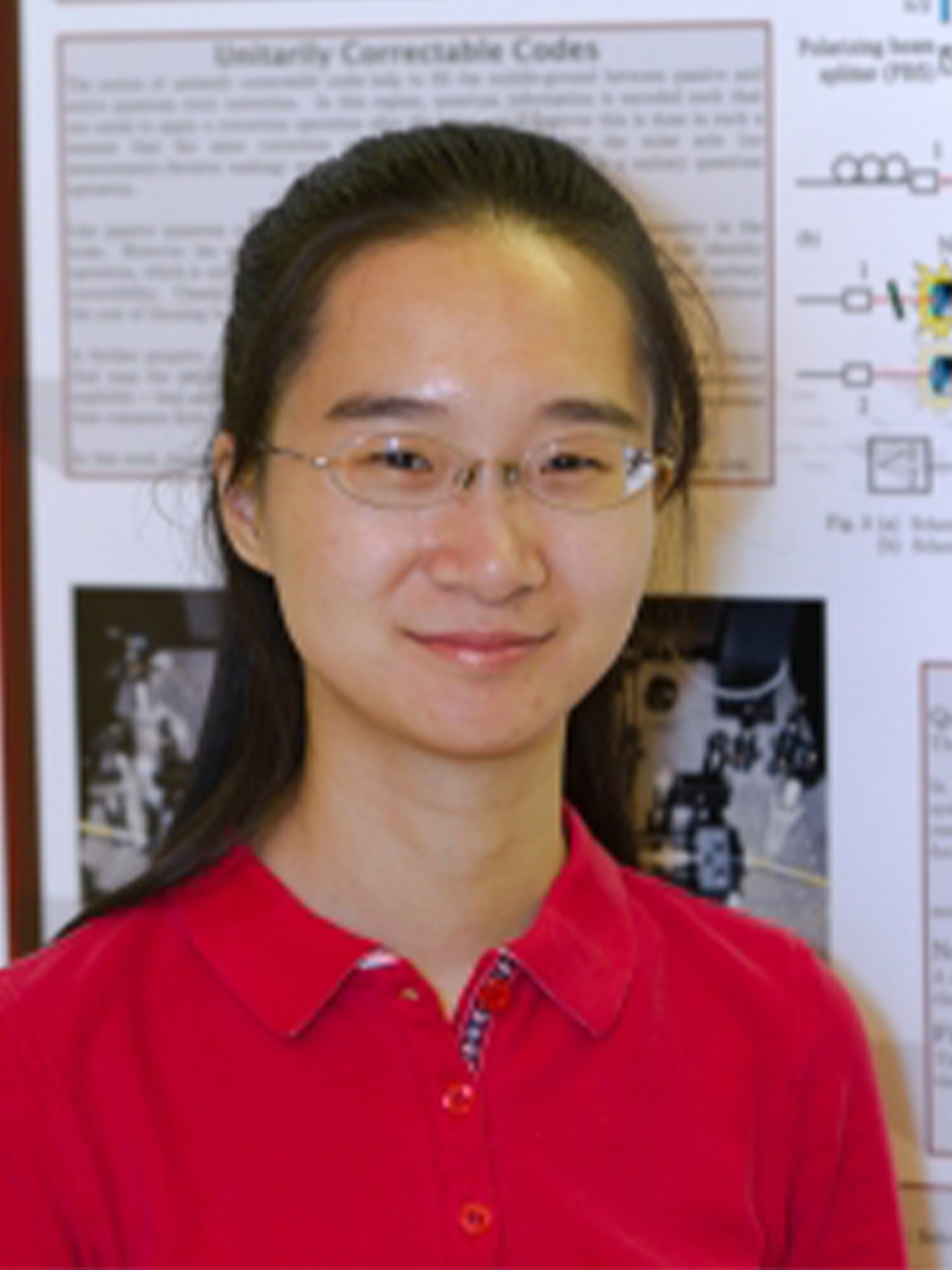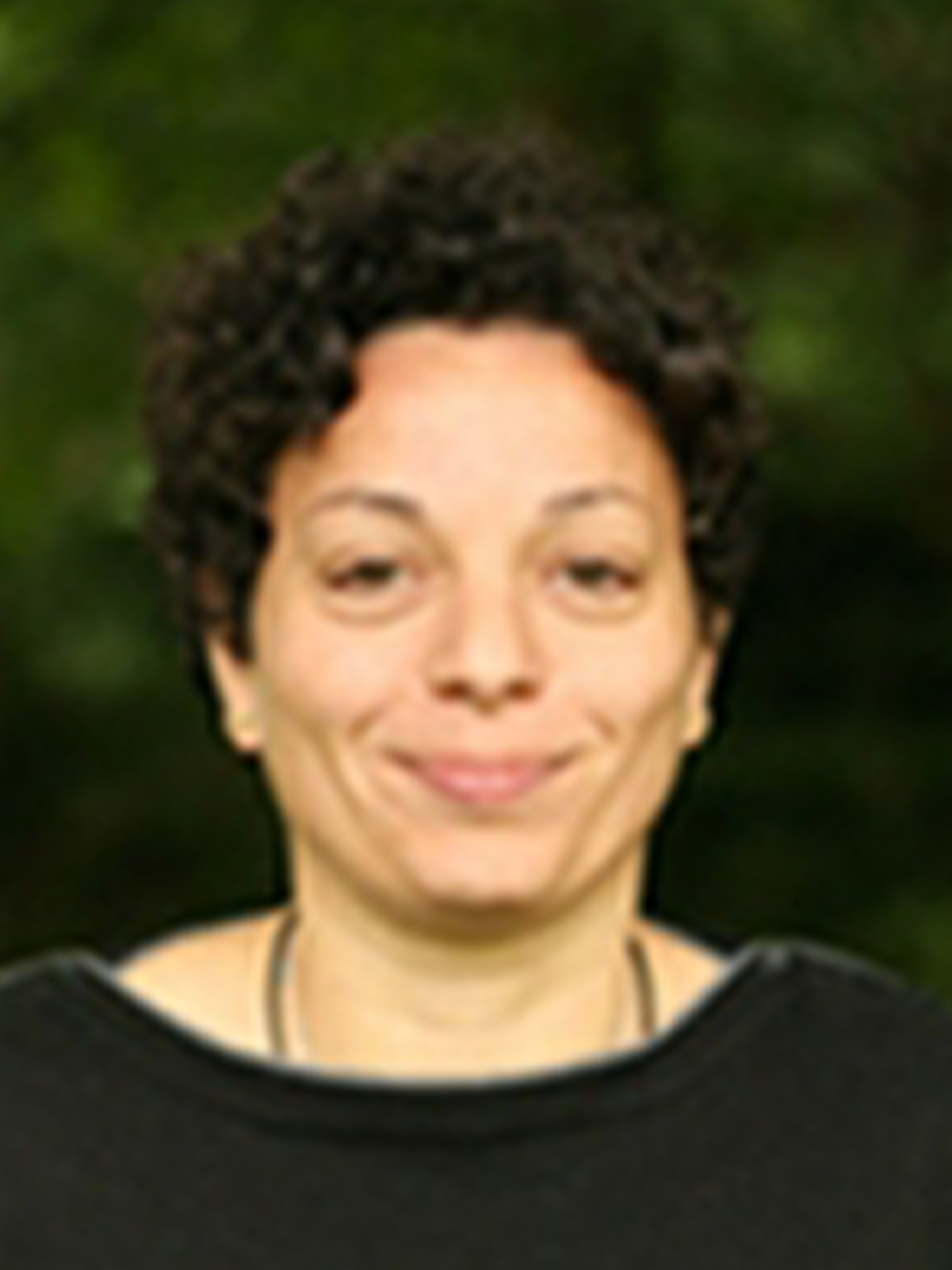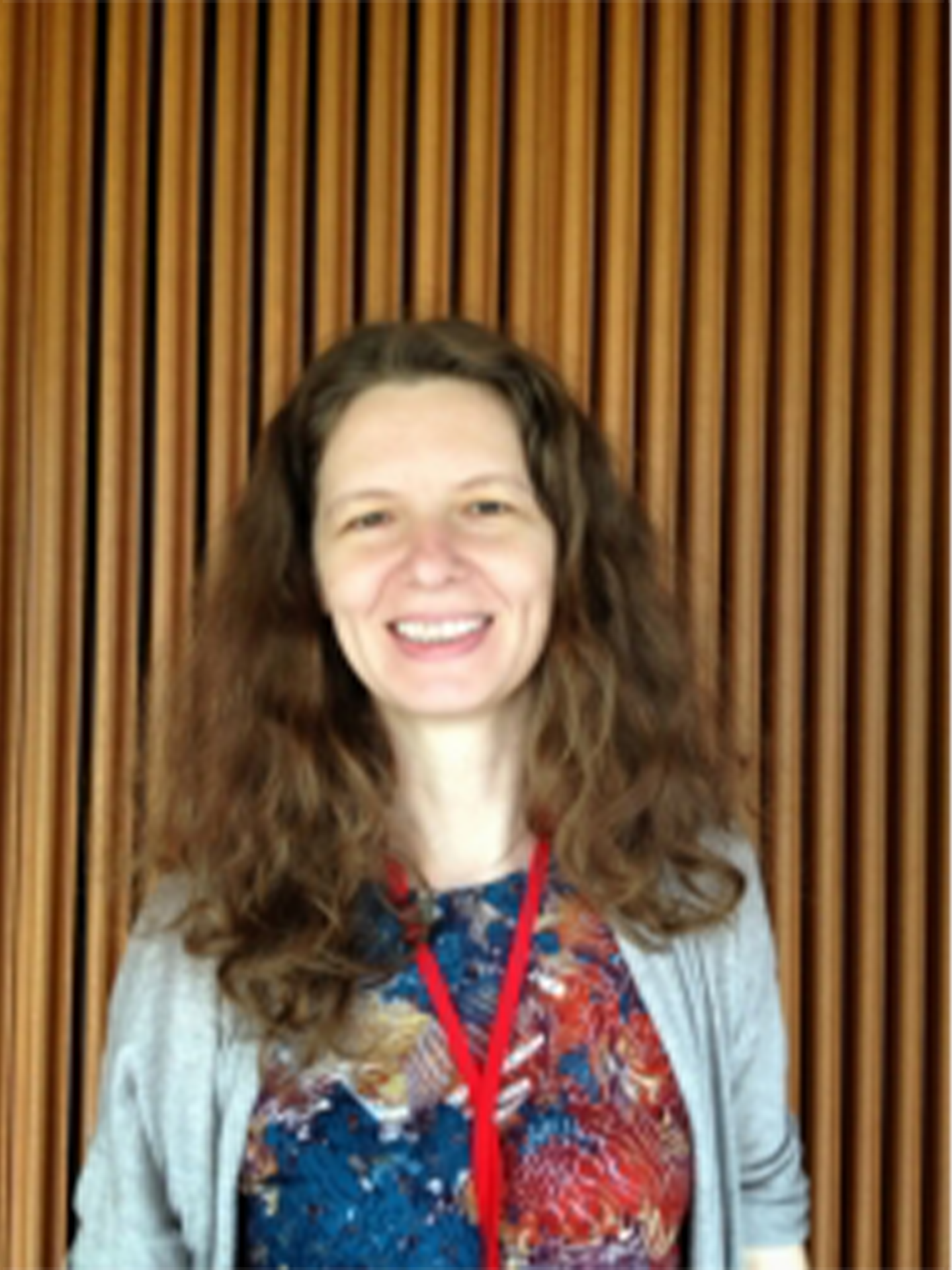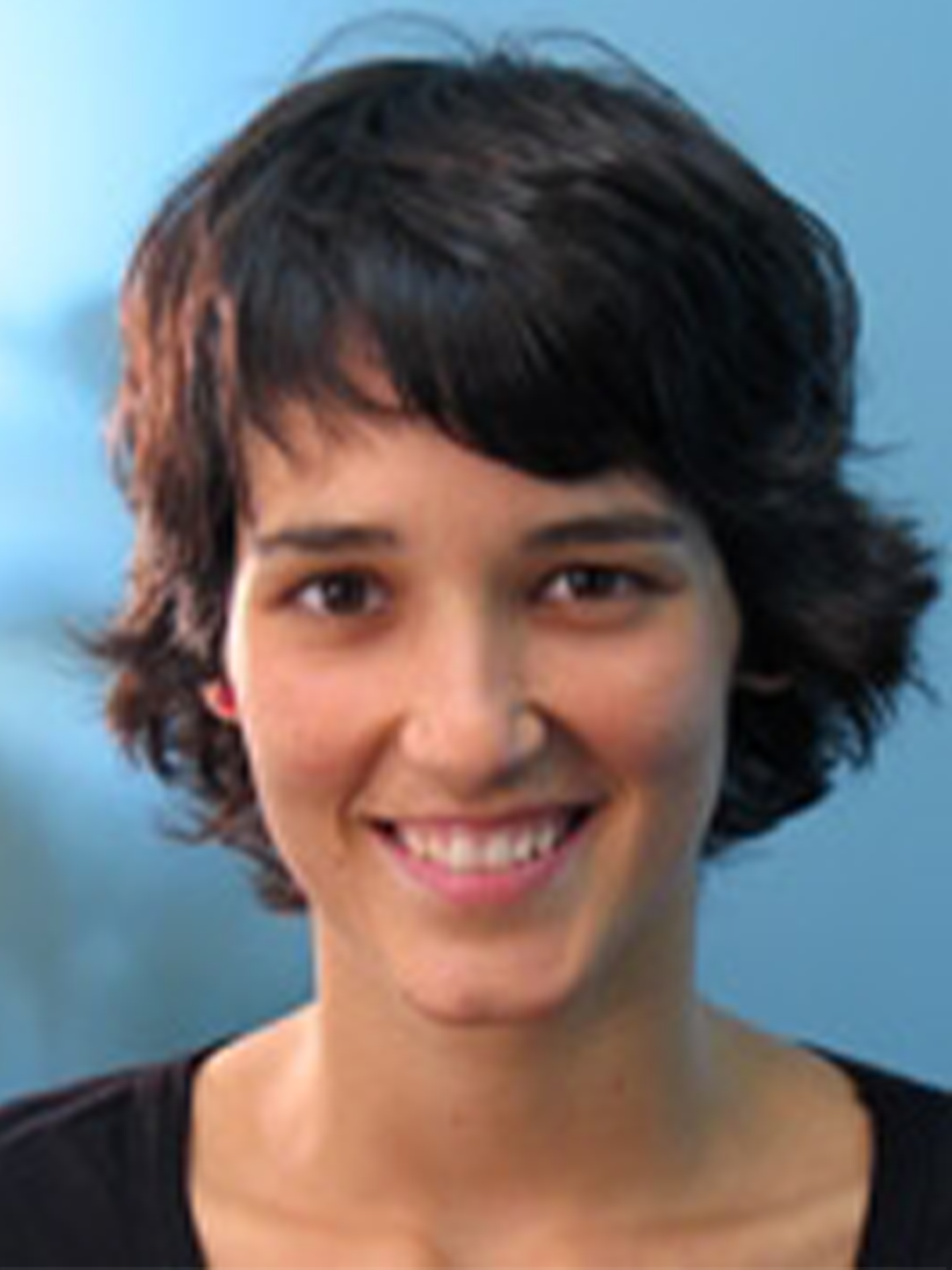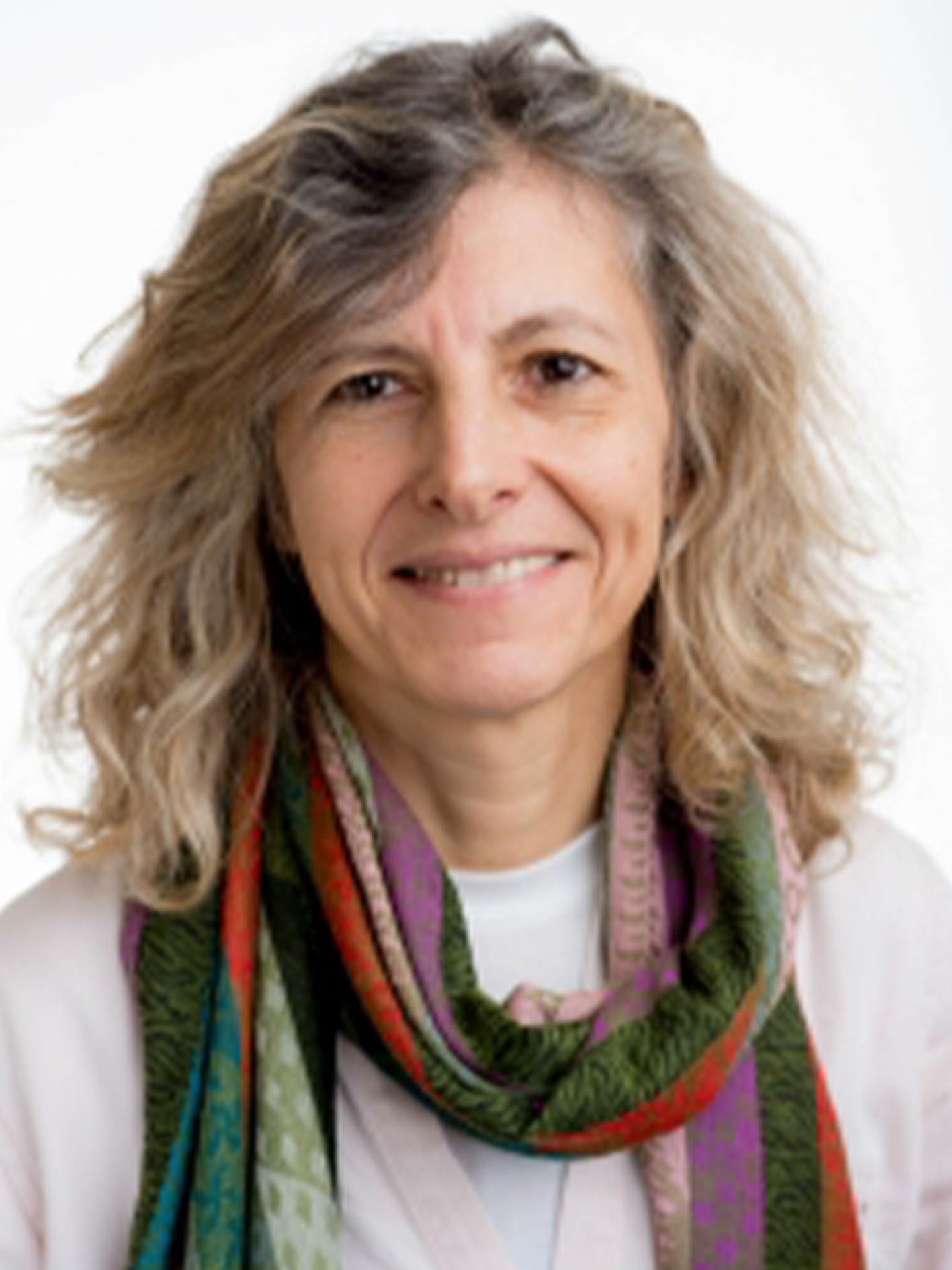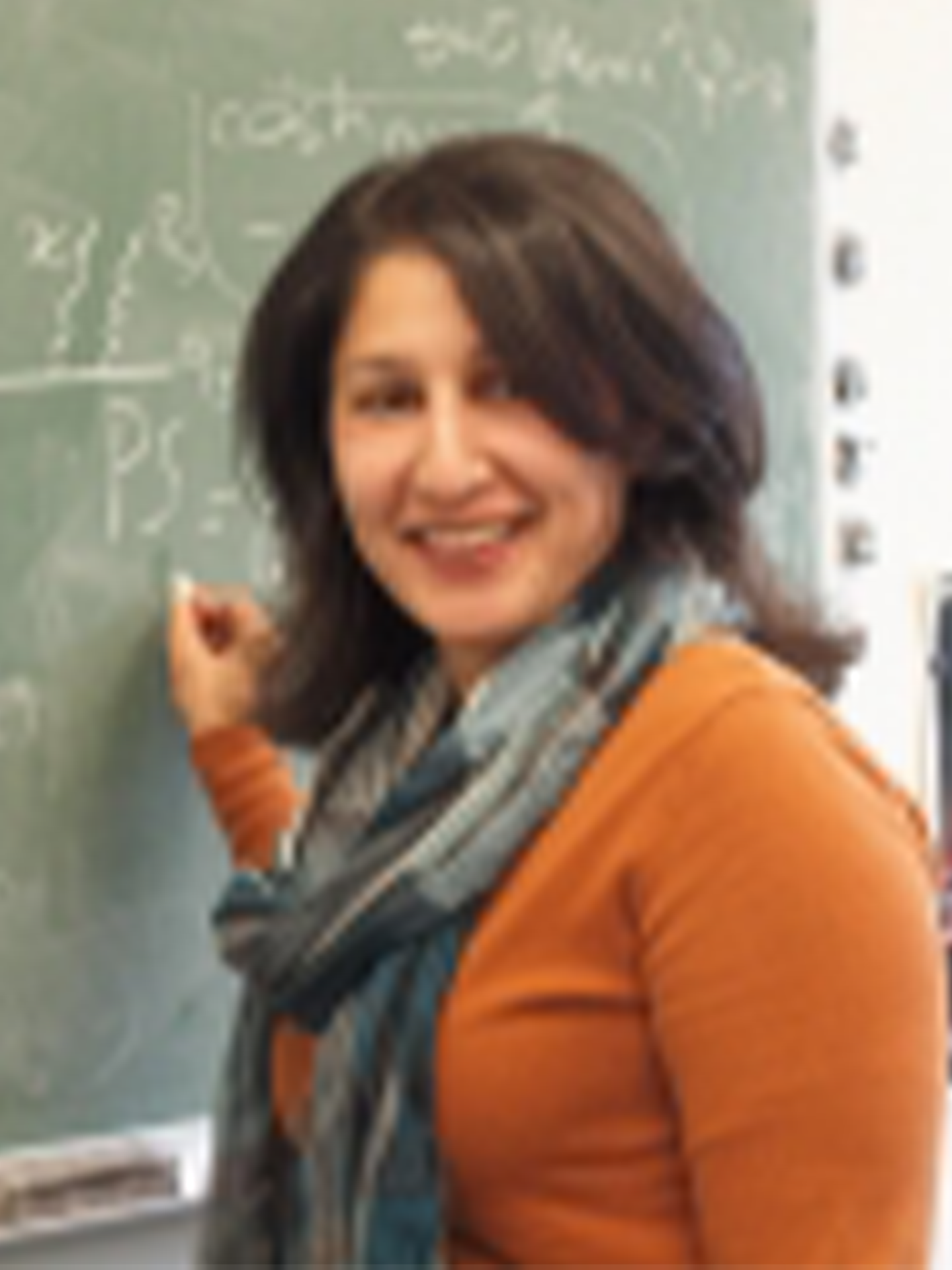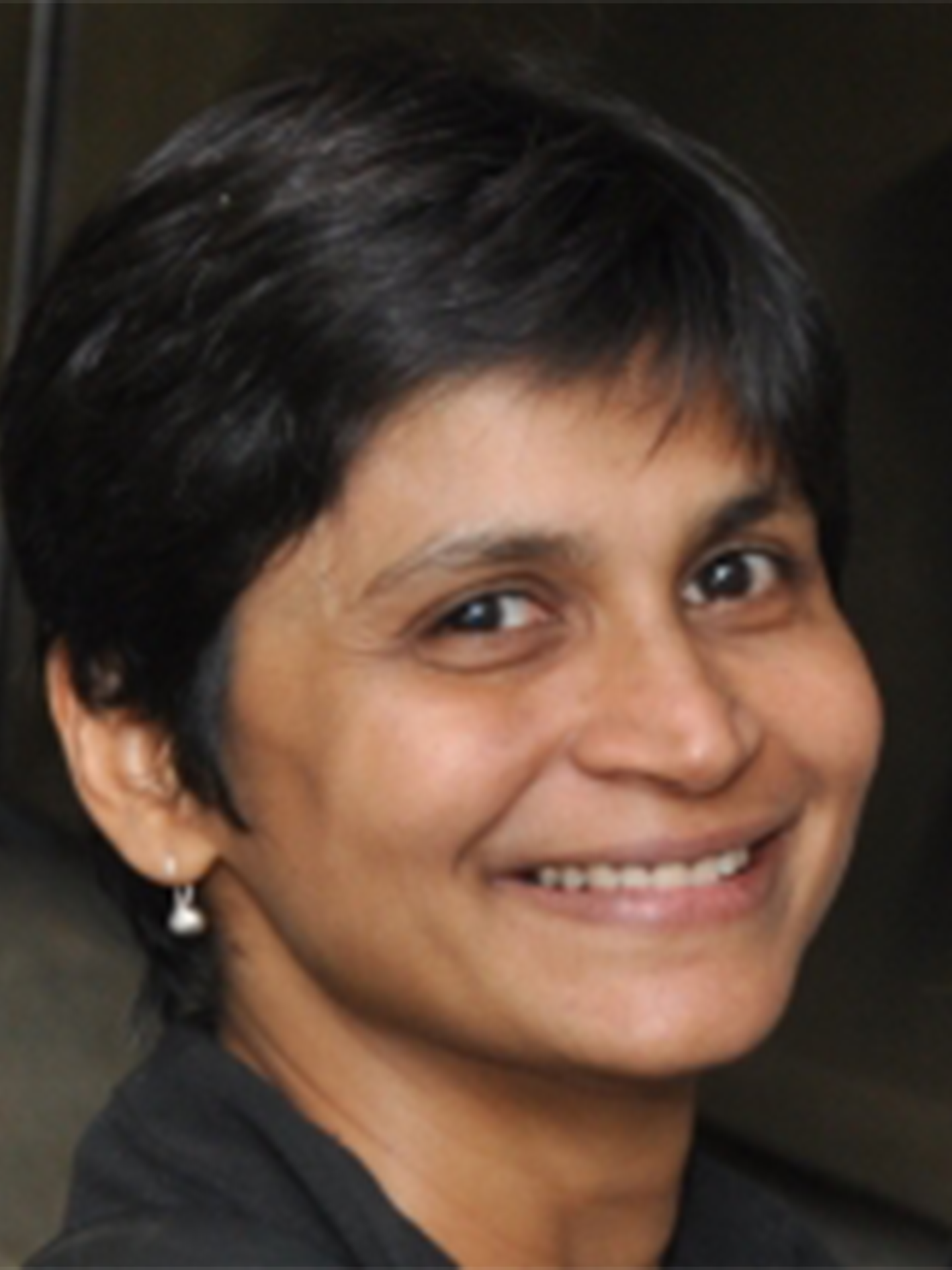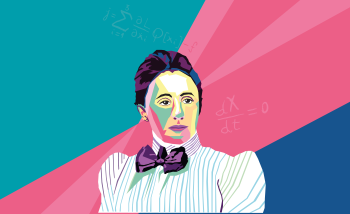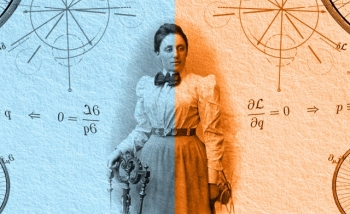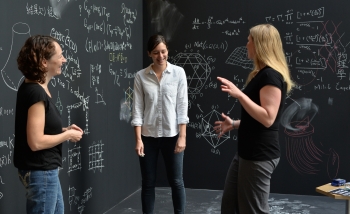Perimeter welcomes seven new Emmy Noether Visiting Fellows
Seven scientists, whose work spans fields from quantum information theory to cosmology and particle physics, will soon join Perimeter Institute as the latest group of Emmy Noether Visiting Fellows.
Theirs is the largest contingent of Fellows since the program was launched in 2013 to support women scientists at a crucial stage of their careers.
Coming to Perimeter from the UK, Europe, India, US, and Canada, they have all been invited to spend up to a year immersed in Perimeter’s scientific community for the same reason: they are pursuing research of incredible potential.
While some Fellows will travel from the other side of the globe, Bei Zeng is coming down the road from her home institute at the University of Guelph.
A long-time affiliate of Perimeter, she has often visited the Institute and collaborated with resident physicists. But she hopes her work studying physical systems from information-theoretic perspectives will be even more enriched through this prolonged exposure.
“I hope to interact with more people and learn what they are working on, by talking to them often,” she said. “I am especially interested in learning things that I am not an expert [in]. PI is the place that has all the experts I’d hope to learn from.”
The fellowships are just one of Perimeter’s Emmy Noether initiatives, named after the influential German mathematician whose theorems continue to underpin much of modern physics. Known for her groundbreaking contributions to abstract algebra and theoretical physics, she was regarded by Albert Einstein as “the most important woman in the history of mathematics.”
“The quality of the applicants this year was exceptional and it was difficult to choose between them,” said Faculty Chair Robert Myers.
“These fellowships were created to help talented young scientists pursue important new discoveries,” Myers said. “This year’s group embodies the inquisitive spirit of Noether herself.”
Emmy Noether Visiting Fellows are invited to work at Perimeter for periods of three months to one year. They pursue research and collaborate within the Institute’s scientific community while on leave from their home institutions.
Sumati Surya, a quantum gravity researcher from India, aims to work closely with collaborators in the quantum gravity and quantum foundations groups during her fellowship, but is also looking forward to crossing intellectual paths with researchers in more diverse fields.
“[Perimeter] supports a wide range of theoretical physics including areas that are not necessarily in the immediate limelight,” she said. “It has physicists with differing and sometimes conflicting viewpoints, and this, I think, is key to fostering a truly vibrant research environment, where one does not shy away from new ideas.”
The seven Emmy Noether Visiting Fellows for 2016/17 are:
| Bei Zeng is an associate professor specializing in quantum entanglement and quantum information theory at the University of Guelph. She co-authored Quantum Information Meets Quantum Matter – From Quantum Entanglement to Topological Phase in Many-Body Systems. Her research is on the theory of correlation and entanglement in quantum systems. |
|
| Céline Boehm works at the intersection between cosmology, particle physics, and astrophysics at Durham University in the UK. Over the past 16 years, her research has focused on the experiments that could elucidate the nature of dark matter, the invisible substance that represents about 80 percent of the universe and appears to be an essential ingredient in shaping its large-scale structures. The hope is to unravel new physics beyond the Standard Model and discover the fundamental laws which prevailed in the early universe. |
|
| Didina Serban is a researcher in quantum fields and strings and mathematical physics at Institut de Physique Théorique in France. Over the past decade, her research has focused on higher-dimensional examples of exactly solvable systems, namely in integrability in gauge and string theory. |
|
| Gemma De las Cuevas is a researcher in quantum information, condensed matter, and tensor networks at the Max Planck Institute for Quantum Optics in Germany. Starting in August, she will be at the University of Innsbruck’s Institute of Theoretical Physics, in Austria. Her research focuses on areas such as positivity in tensor networks, continuous limits of tensor networks, and the universality of classical spin models. |
|
| Mairi Sakellariadou is a professor of theoretical physics at King’s College London in the UK. Her field of research is theoretical physics and cosmology, with an emphasis on the physics of the early universe. Her research stands at the interface between cosmology, theoretical particle physics, and gravitational theories, testing the most advanced theories against the plethora of astrophysical, cosmological, and high energy physics data. Her aim is to keep contributing to the collective scientific effort to uncover the early stages of the evolution of our universe and provide the means to test quantum gravity proposals, using the early universe as our (unique) laboratory. |
|
| Radja Boughezal is a particle physicist at Argonne National Laboratory in the United States. Her research focuses on ultra-precise predictions in Quantum Chromodynamics (QCD), the theory of the strong force. She has recently applied her QCD investigations to understand the properties of the newly discovered Higgs boson, the particle that is believed to give mass to all elementary particles in nature. Radja’s predictions are needed in order to understand whether the measured properties of the Higgs boson hint at the existence of new laws that address open questions about our universe |
|
| Sumati Surya is a quantum gravity researcher at the Raman Research Institute in India whose work over the past 10 years has focused on the causal set approach to quantum gravity and the related areas of Lorentzian geometry and quantum foundations. Her work involves an ambitious bottom-up attempt to reconstruct continuum spacetime from discrete sets of points which are partially ordered. This partial order mimics the causal structure of spacetime which itself encapsulates the entire conformal geometry. |
|
Further exploration
About PI
Perimeter Institute is the world’s largest research hub devoted to theoretical physics. The independent Institute was founded in 1999 to foster breakthroughs in the fundamental understanding of our universe, from the smallest particles to the entire cosmos. Research at Perimeter is motivated by the understanding that fundamental science advances human knowledge and catalyzes innovation, and that today’s theoretical physics is tomorrow’s technology. Located in the Region of Waterloo, the not-for-profit Institute is a unique public-private endeavour, including the Governments of Ontario and Canada, that enables cutting-edge research, trains the next generation of scientific pioneers, and shares the power of physics through award-winning educational outreach and public engagement.

